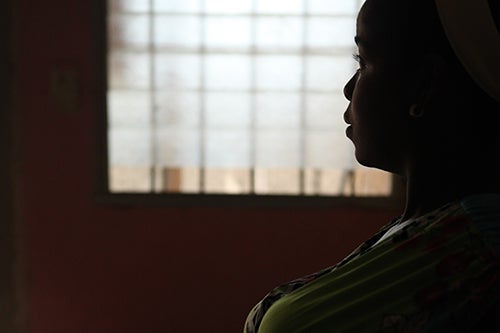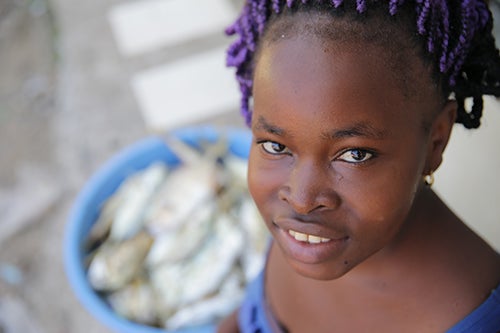Indigenous, Afro-Honduran communities join together to fight pandemic

TEGUCIGALPA, Honduras – As countries grapple with the COVID-19 pandemic, indigenous and Afro-descendant communities are among the most vulnerable, with many facing poverty, poor health-care access and limited information. In Honduras, members of these communities are joining together to ensure information and resource reach the most vulnerable.
“We have had to get creative in these times,” said Yimene Calderón, head of the Organization for Ethnic Development, which is working with the Garífuna community to raise awareness of infection control measures and provide support to households in need.
They are “being resilient, relying on our traditional medicine and foods, and seeking support and solidarity to receive assistance from the government — not individually, but collectively, and operating as a network,” she said.
Indigenous and Afro-descendant communities hard hit
Thus far, more than 1,800 cases of the disease have been confirmed in Honduras. The outbreak is concentrated along the country’s northern coast, where much of the Garífuna population lives.

The Garífuna community has roots among both indigenous groups and African descendants. Many households are headed by women or grandmothers, with one or both parents working abroad to send money home. As in other Afro-Honduran and indigenous communities, some neighbourhoods and households lack electricity, Internet access and running water. Food insecurity is common, and many are unable to access health services due to distance or affordability.
All of these vulnerabilities have been exacerbated due to the pandemic.
Major sources of income – including remittances, tourism and small businesses – have been severely curtailed. The most vulnerable may be unable to engage in social distancing or frequent handwashing, among other disease prevention measures.
But these communities are also proving to be resilient.
Communities taking action
Afro-Honduran and indigenous communities have joined efforts to contain the spread of COVID-19. Working with UNFPA and the Pan American Health Organization, they have translated disease prevention information into the Garífuna language, as well as the Misquito, Tawahka and Chortí languages. This information is being used by health workers, community radio networks, television programmes and youth advocates promote safe behaviours.
Community members are also making their own cloth masks, and turning to traditional foods and medicines.
“We have coordinated several group-chats with physicians, nurses and health staff in the Garifuna community,” said Suamy Bermúdez, a Garífuna doctor who is working with others to develop a campaign to reach isolated households with limited access to health care.
Their campaign will provide information about disease prevention and traditional medicines, disseminated via chat groups, lectures and manuals. The campaigns will also address the rights of indigenous people.

“Historically, Honduras’ most vulnerable populations have faced segregation and a lack of investment in health care,” said Kenny Castillo, spokesperson of the Directorate of Indigenous and Afro Honduran Peoples (DINAFROH) of the Ministry of Development and Social Inclusion.
“We have opened channels to assess the situation, including dialogue to address not only the issue of COVID-19, but also the post-COVID-19 scenario, where communities should have a strong position to demand investments in health and education.”
In addition to its support for community action, UNFPA working with partners to support policies upholding the rights of indigenous women and Afro-descendants to sexual and reproductive health services and information, empowerment and violence prevention.
A version of this story was posted on unfpa.org on May 11, 2020.